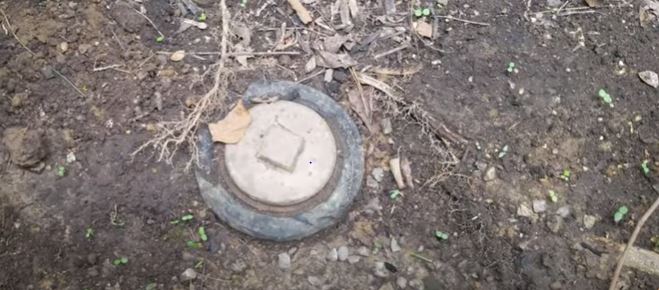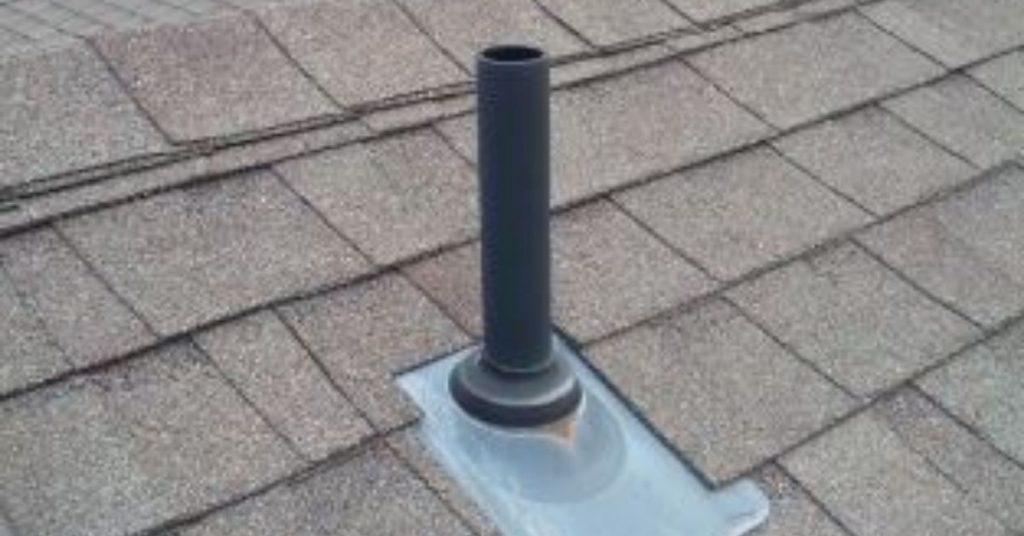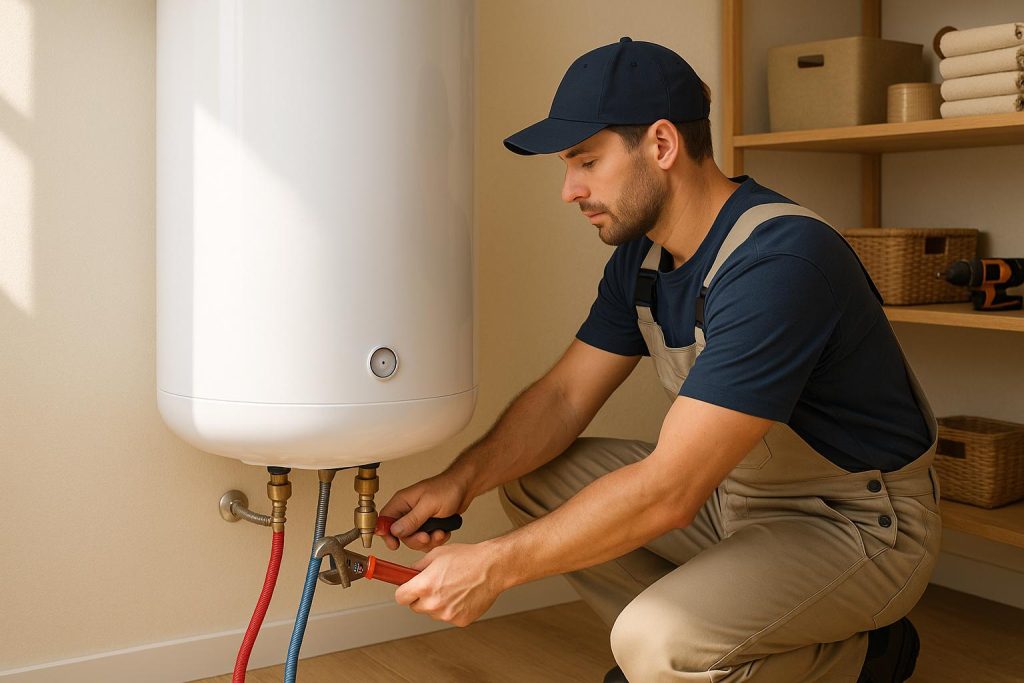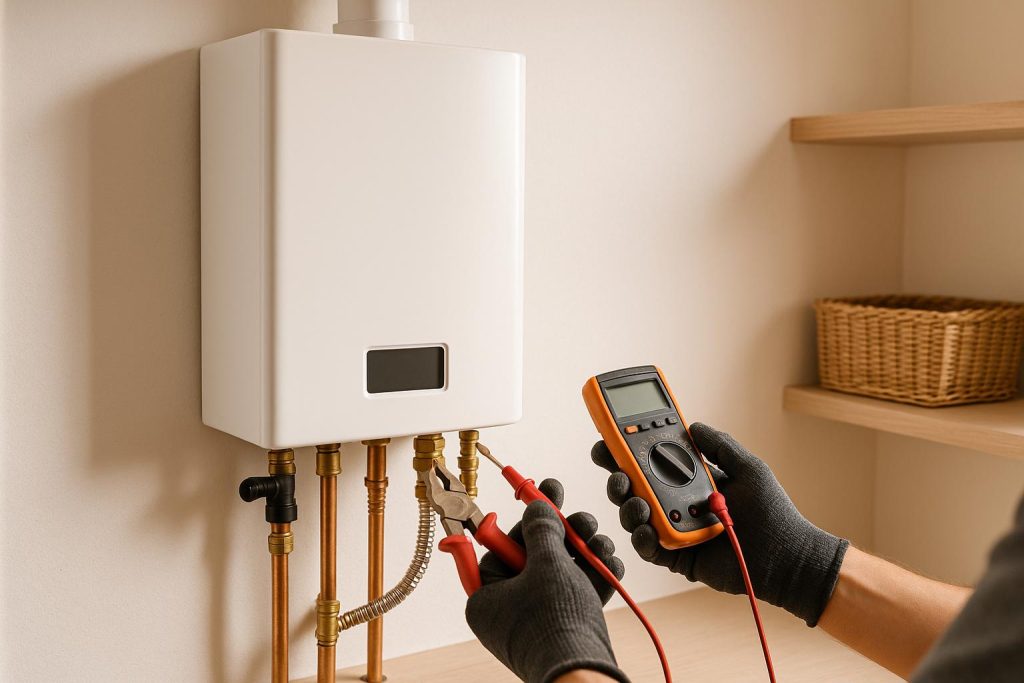
A sewage smell outside the house is often caused by a leaking sewer line, backing up city sewer, blocked plumbing vent or problems with the septic tank. Poorly maintained septic tanks or leach fields will allow sewer gases to escape and hence the sewage smells outside the house.
Here is a brief summary of this post:
Causes
- Blocked or Damaged Sewer Lines: Blockages or damage to sewer lines can cause sewage to seep out and create a foul odor around the property.
- Leaking Septic Tank: A leaking or overflowing septic tank can release sewage into the ground, leading to odor issues.
- Sewage Backup: A backup in the sewer system can cause sewage to push back into your property, resulting in foul smells.
- Broken Sewer Vent Pipe: A damaged or disconnected sewer vent pipe can release sewer gas, leading to odors near your house.
- Dry P-Trap: The water in plumbing P-traps acts as a barrier to prevent sewer gases from entering your home. If a P-trap dries out, it can allow odors to escape.
What to Do
- Inspect the Area: Locate the source of the sewage smell and visually inspect the area for any signs of sewage leakage or pooling.
- Check Plumbing Fixtures: Ensure that all plumbing fixtures in your home, including toilets, sinks, and floor drains, have water in their P-traps to create a barrier against sewer gas.
- Septic Tank Inspection: If you have a septic system, have it inspected regularly and pumped as needed to prevent leaks and overflows.
- Sewer Line Inspection: Consider a professional sewer line inspection to identify any blockages, cracks, or damage in the sewer lines leading away from your house.
- Professional Help: If you can’t locate the source or resolve the issue on your own, it’s advisable to contact a licensed plumber or septic service professional to assess and address the problem.
- Preventive Maintenance: To prevent future issues, schedule regular inspections, cleanings, and maintenance for your sewer or septic system.
- Follow Local Regulations: Be aware of and comply with local regulations regarding sewer or septic systems, which may include maintenance requirements and reporting obligations.
How to Get Rid of Sewer Smells Outside the House
The following are some of the ways to get rid of sewage smells outside your house:
1. Fix a leaking Sewer Line
A sewer line is a horizontal line that runs from the house to through the yard to the public sewer lines near the streets. It slopes towards the streets so that the waste can flow out via gravity and is usually a 4-inch pipe though some are large than that.
With time, sewer lines develop tiny cracks, allowing wastewater to leak out. If not fixed, the cracks will develop and cause major leaks and you can even see unusually green patches on your yard or even soggy spots and sink holes.
As the temperature rises and the waste decomposes, sewer gases seep out of the ground into the surrounding area and that is why you may be experiencing sewer gases outside your house.
It is not easy to tell if your sewer line is leaking unless you see the signs I have outlined above. What you can try to do is walk along the sewer line from the house towards the street and try to detect if there is a spot where the sewage smell is intense.
To know the exact path of your sewer line in the yard, start by locating the sewer cleanout. This is a 4-inch pipe with a cap that sticks a few inches from the ground. It allows you to gain access to the sewer line.

The sewer clean out is located very close to the house but could also be hidden by flower bushes or mulch. When you spot it, slowly walk towards the street in a straight line detecting changes in intensity of the sewage smell.
You can also have plumber run a sewer camera via the drain cleanout and check if indeed the sewer line is leaking.
2. Extend the Plumbing Vent

A plumbing vent is the vertical pipe which runs through the roof of the house. It is connected to the main drain stack in the house and has 2 main functions:
- Introduction of air in to the drainpipe which helps the fixtures to drain fast and toilets to flush strongly. In short, it equalizes pressure inside the drainpipe preventing the creation of negative air pressure.
- Removes sewer gases from the drainpipe. This prevents the same from being forced out through sinks, toilets and shower drains, which is what happens when the vent stack is clogged.
If your house is put up in a valley or where the plumbing vent is obstructed by an object taller than it, negative air pressure will be created forcing the sewer gases being removed from your house to be redirected towards your yard.
Changes in the direction of the wind and temperature will also contribute to the problem.
One thing you can do to get rid of the sewer smell is extend the plumbing vent higher than the obstruction. That will help equalize the pressure between the inside of the vent and the surrounding meaning the sewer gases will be removed from the home.
3. Install a Carbon Filter on the Vent
An even easier solution would be to install a carbon filter (also known as a charcoal vent filter) on top of the plumbing vent. This is a cheap solution that does not need you to hire a plumber.
The carbon filter removes hydrogen sulfide (the sewer smell) and methane gases before they exit the plumbing vent.
4. Install an Elbow on Your Septic Tank Inlet Pipe
Are you experiencing sewer gases outside your house and you are on a septic system? The smell could very well be coming from your septic tank.
What happens in this case is that instead of sewer gases exiting through the plumbing vent, they instead exit through the pipe which drains into the septic tank. This especially happens then it is windy.
The wind forces the sewer gases down the vent and into the sewer line and since sewer lines don’t utilize P-traps, the gases exit through the septic tank.
Head to your septic tank and lift off the cover. Check where the pipe enters the septic tank and install an elbow that runs to just below the water line.
By so doing, the water will act as a barrier and prevent the sewer gases from flowing out. I learnt this cool trick from the Grumpy Plumber.
5. Inspect the Septic Tank Cover
The septic tank manhole is usually covered using a concrete cover, but the same could also be made of metal or even plastic. If you need help locating your septic tank, check out this post.
A plastic septic tank should have a rubber seal to help contain the sewer gases inside the tank. It will also be secured using screws.
If the seal is worn or the cover is just not sealing properly, sewer gases will escape from the tank and reign supreme outside your house. Replace the seal if it is worn out.
Look for a temporary way to seal a leaking concrete septic tank cover until you can replace it entirely.
If the sewage smell is coming from your leach field, have a licensed plumber come and inspect it. The pipes could be blocked or the field could be soggy resulting in a strong sewage smell.






